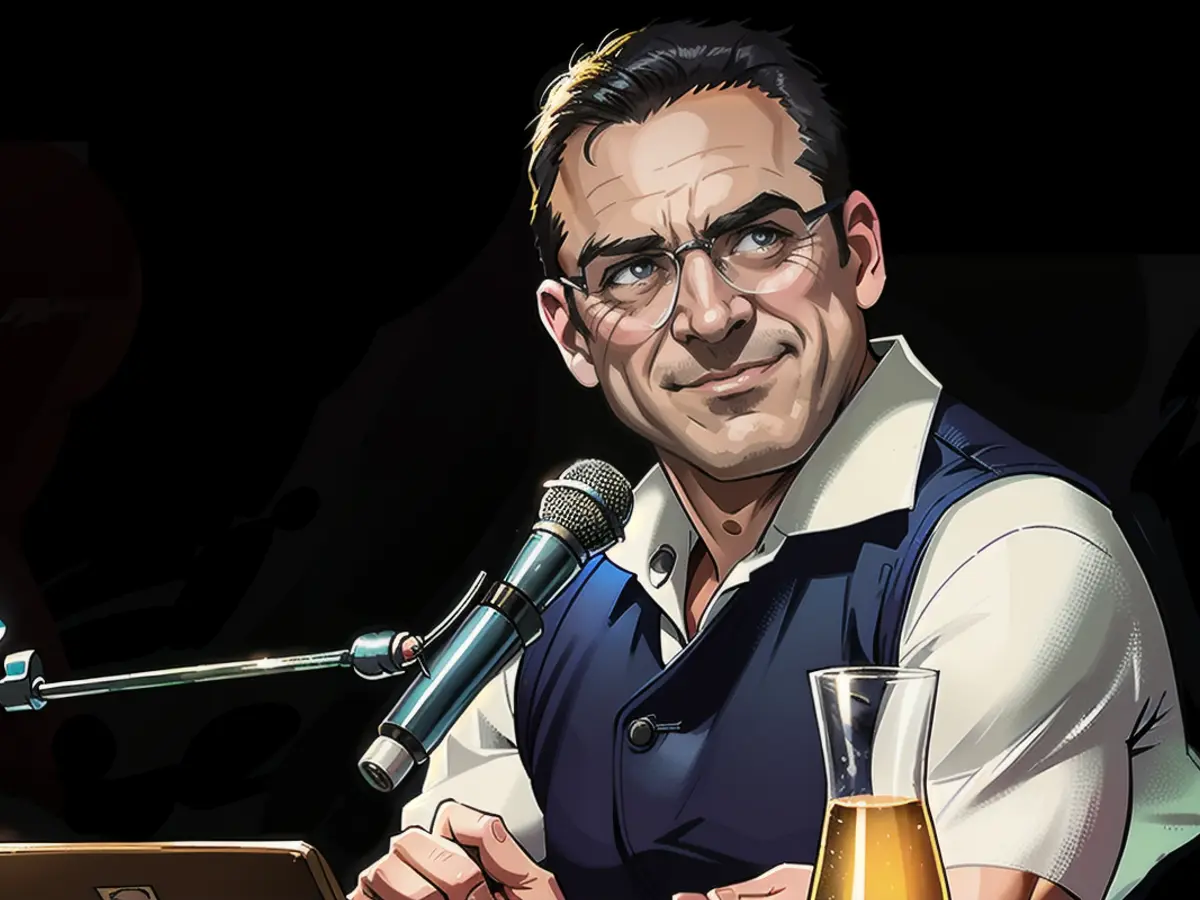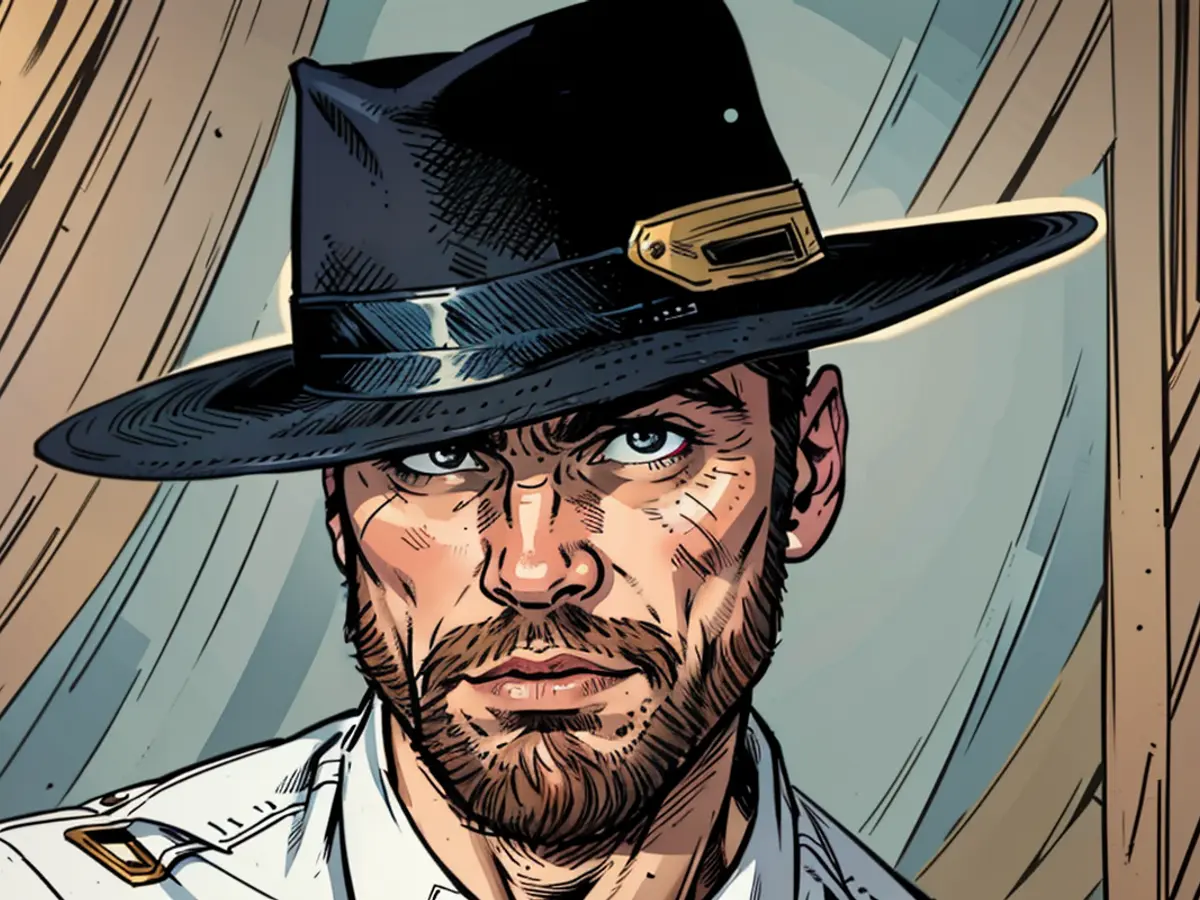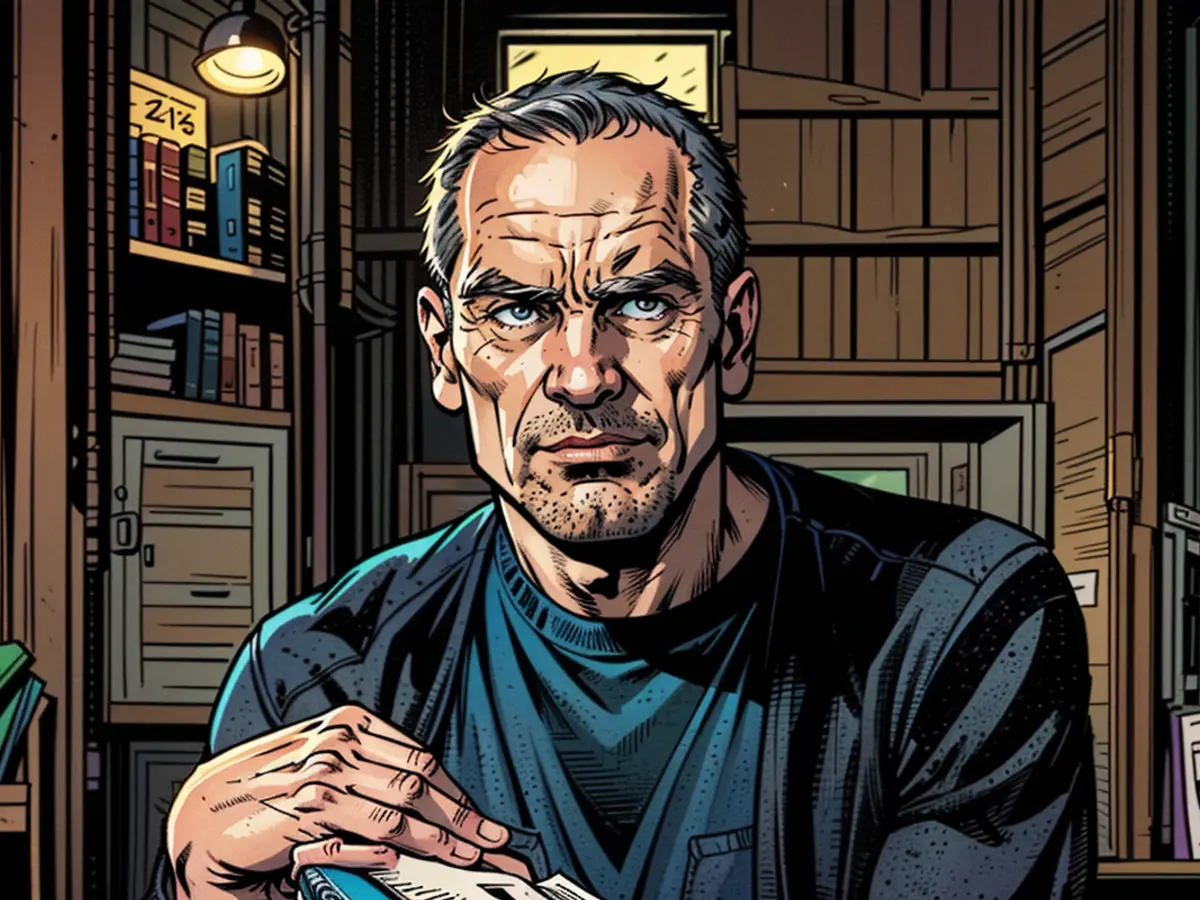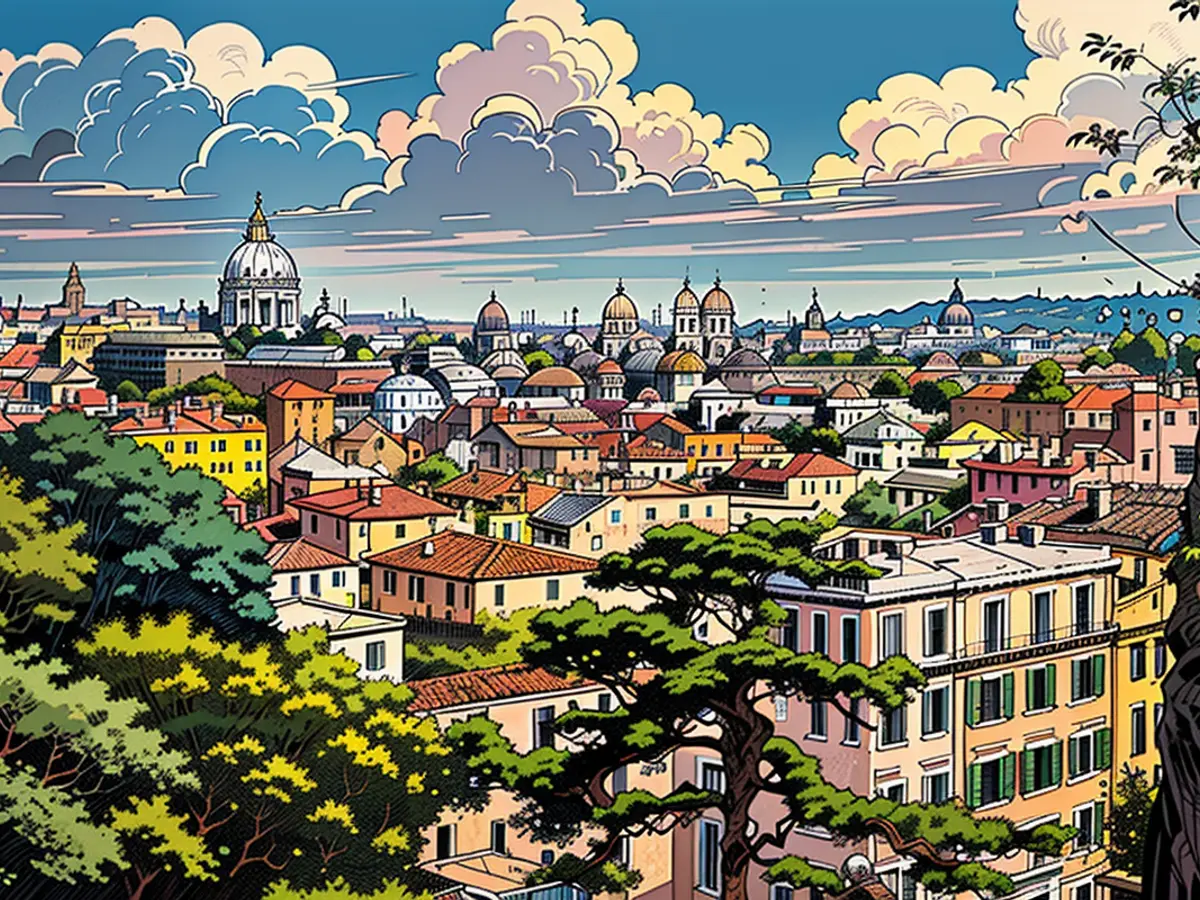Rocko Schamoni discovers the key element.
What do you wish to become when you grow up? A figure of legend? Perhaps while you're still alive? That's likely what Rocko Schamoni was thinking as he left his hometown and ventured into the vast world. Now, Schamoni has penned a new book—one for dog enthusiasts, punks, and their intersection.
Michael Köppel (Superfilm) regards him as the "Kai Pflaume of the punk generation with an exceptional wardrobe." Others reckon he's the only genuine entertainer, the only true singer, a gifted interviewee, a remarkable interviewer, a brilliant reader, or a unique writer. Here, the focus is on the latter because Rocko Schamoni has created a new book. "Pudel's Core" is its title, and it's so engaging from the get-go that it necessitates intermittent artistic pauses to ensure the fun doesn't fly by too swiftly.
Therefore, it transpires: In the summer of '86, a young lad sets out from his village to explore Hamburg. He's wearied by what was before. But it doesn't feel particularly irate. He's not piqued to the point of anger. He simply feels perplexed. He also craves something new, more of everything. More of everything. Schamoni portrays this period with much directness and force, yet his words also have a soft and empathic touch: "When I revisit my diaries, when I mull it over more thoughtfully, when I immerse myself deeper into my memories, I relive the pressure and confinement, the uncertainty, the confusion, the despair, the meaninglessness, the brutality, in essence—the pain of my youth."
Consequently, Schamoni is seeking solace from this state of disorientation. Seeking to be present. At only 19, he desires to make music, relish youth, embody art, and immerse himself in every facet of expression. However, he's frequently self-defeating: "I possess everything, but I've also discarded all self-worth. I see myself as mostly unworthy of life. Stupid, not a jest, but an insight into an impotent, state of hopelessness."
Then, he takes steps to ameliorate his anguish. He's yearning to plummet into the depths, "where moisture and sweltering heat breed odd creatures." He encounters a host of musicians: The Oranges, the Doctors, the Pants, the Neubauten—yet, he's yearning for his role in this global tapestry. He alters his name—would he have been Tobias Albrecht if he bore the moniker Rocko Schamoni instead?
"Pudel's Core" takes us down memory lane, particularly for those who share his birthyear: Punk culture and basement get-togethers, fides, caritas, spe, amor, lux, spe, resurgere. And for the rockstars of yesteryear, it's akin to a journal of introspection, a reflection from a matured man who observes his younger self with a curious, often amazed perspective. He's not boastful, which is endearing, yet he appears insufficiently introspective to have penned this book. Luckily, he made a different call. Schamoni acknowledges, "The language is familiar to me. I recognize it, every sentiment and action seems familiar and foreign simultaneously."
This sentiment is relatable to many—regardless of their experiences or coolness quotient. Not everyone can unravel their emotions in such an elegant way as Schamoni does. Has anyone ever opined: "Nothing holds worth anymore, everything flows, we're jellyfish of affection?"
Schamoni sees himself as nostalgic, romantic, sentimental, and pragmatically realistic (a lethal concoction, he admits). With someone like him, uncertainty lingers: And how profoundly does he mean that now? Because he also declares: "The poodle is a multifaceted creature: On the surface, it's sweet, adorable, enjoyable, well-kept, humorous. In the center, though, it's rough, neglected, sassy, ferociously mischievous—much like me." ^
When you're as experienced as Rocko Schamoni, you can relate to a lot in this book. At some point, I wondered what the phrase "Pudel's core" signifies. It's an expression we use when we uncover something that wasn't instantly apparent. In this journey, Schamoni is searching for the dark center of his drama, but why Pudel and why core? You'll need to look it up yourself if you're not already familiar with it: Consider "Faust," the most prominent work of German literature, per Wikipedia. And if you're not into Goethe, read Schamoni, as he's already produced valuable works before "Pudel's Core." Encourage others, particularly younger individuals, to read this book. It alternates between ups and downs, like life itself, and Schamoni occasionally displays his weariness, his reluctance or inability to continue. Yet, he managed to persevere and maintain his enthusiasm!
At some point, he identifies with lemons, attaching himself to them as if he were a lost pet. He narrates about a performance at the Berlin Tempodrom. There, amidst bands like Tote Hosen and Ärzte, a rising young musician appears on stage, in an attempt to provoke the fans of these bands - to insult them - only to ultimately give in: "I submit myself again as a target (...) and flounder clumsily on stage, soon my entire consciousness drowns in beer." The following day, a cultural journalist writes, "Rocko Schamoni, the new star in the beer sky, sang last night like a dying swan under an overturned truck." This sentence, penned by a cultural journalist, left Schamoni feeling deeply ashamed.
It's fortunate he chose to confront his personal demons and overcome them - for otherwise, we wouldn't have access to this extraordinary book, which is equally amusing and sad, and seems so autobiographical that even the possibly fabricated parts seem outlandish.
In 1991, it ends on page 301. On the one hand, this is disappointing, but on the other, it allows for room to breathe as Schamoni's life after this point was anything but mundane. The only question that comes to mind is, "Why didn't I visit Sankt Pauli more frequently?"
Read also:
Rocko Schamoni's love for music and the lifestyle associated with it led him to embrace the local punk scene in Hamburg, frequenting venues like the FC St. Pauli's stadium. His musical aspirations led him to connect with various bands, including The Oranges and Neubauten, trying to find his place in the Hamburg punk community.
In his new book, "Pudel's Core," Schamoni draws parallels between his personal journey and the spirit of punk, merging his experiences with the Hamburg punk lifestyle and FC St. Pauli's rebellious spirit, reflecting on how music and punk culture served as a beacon of hope and inspiration during his formative years.








